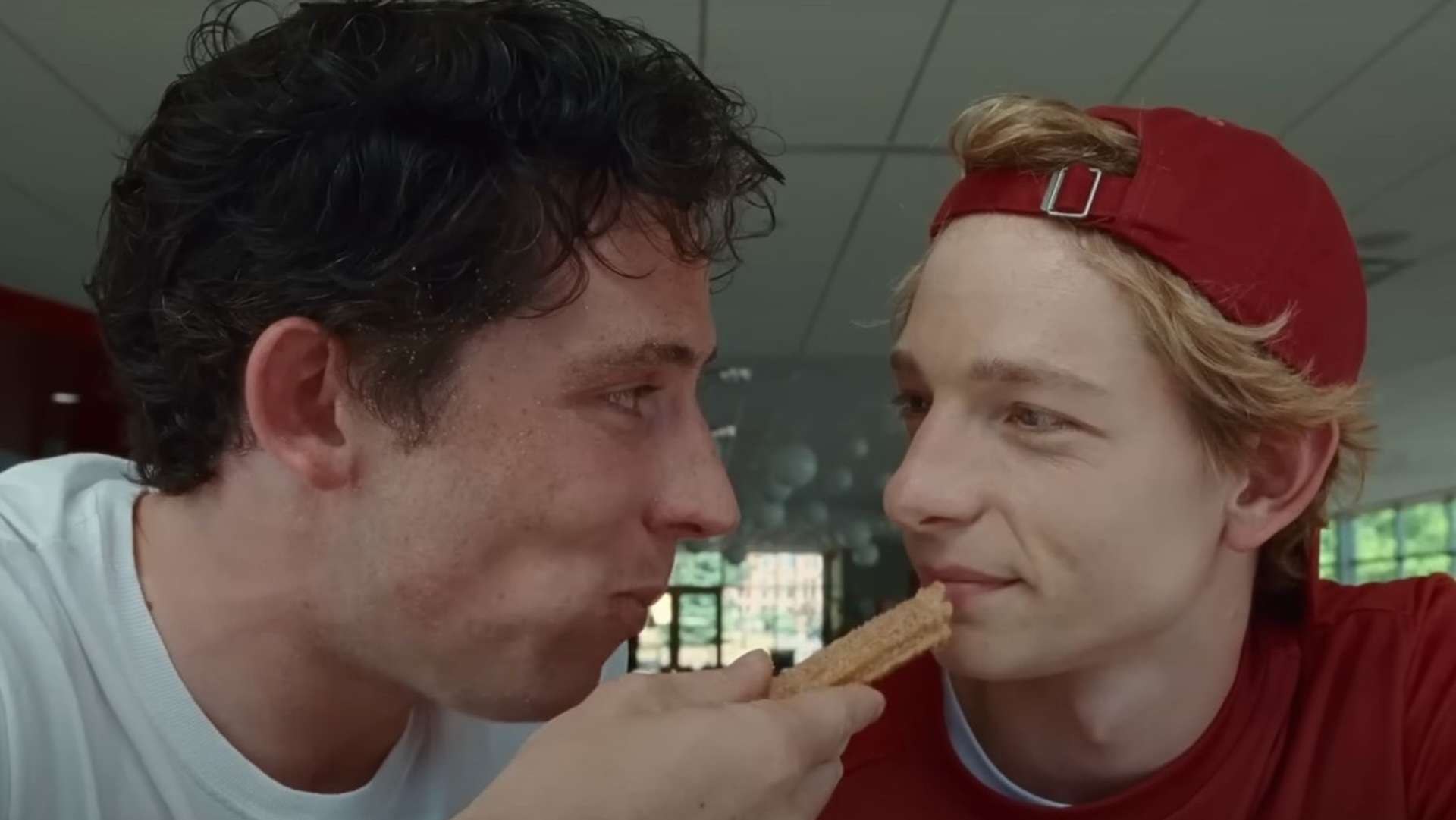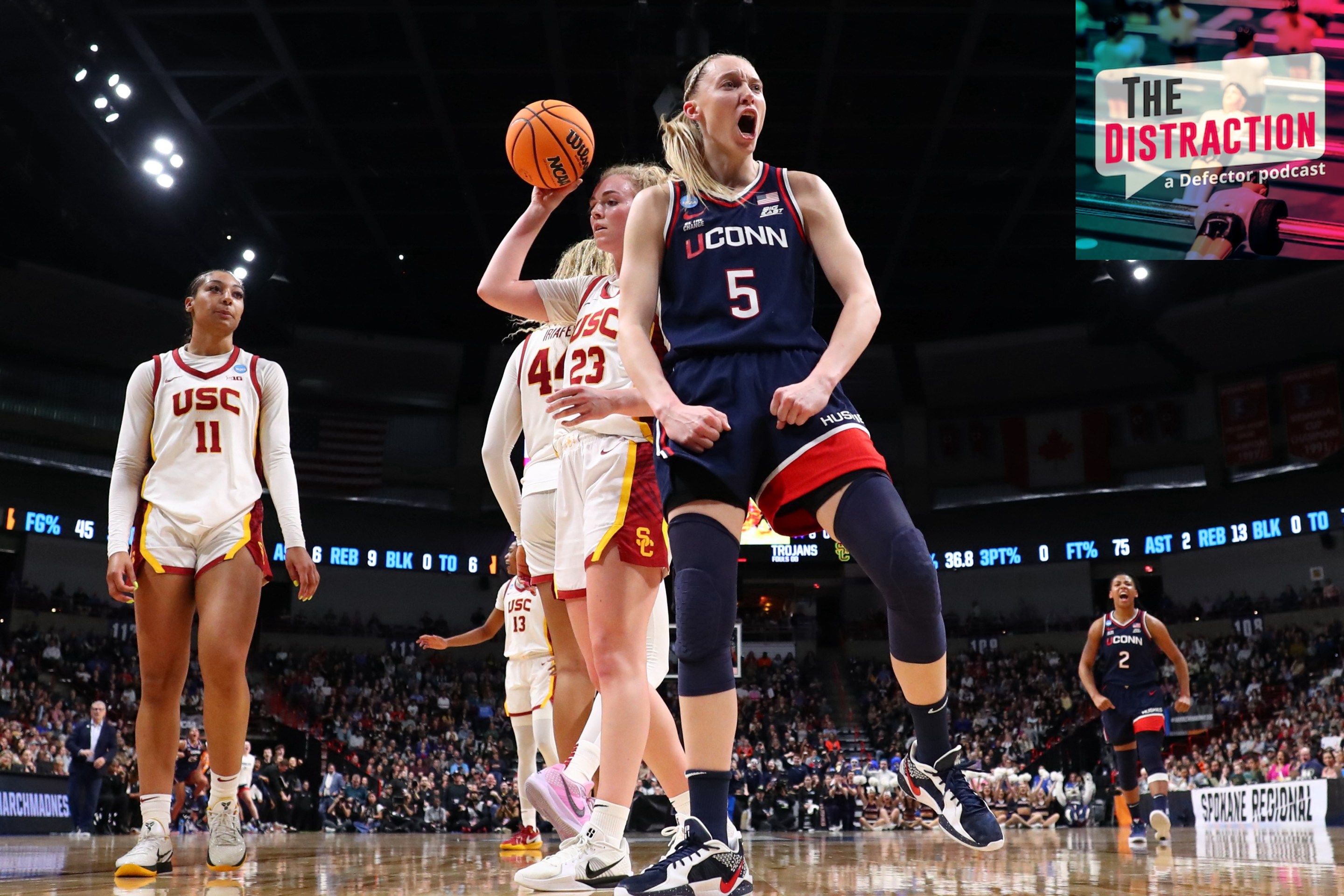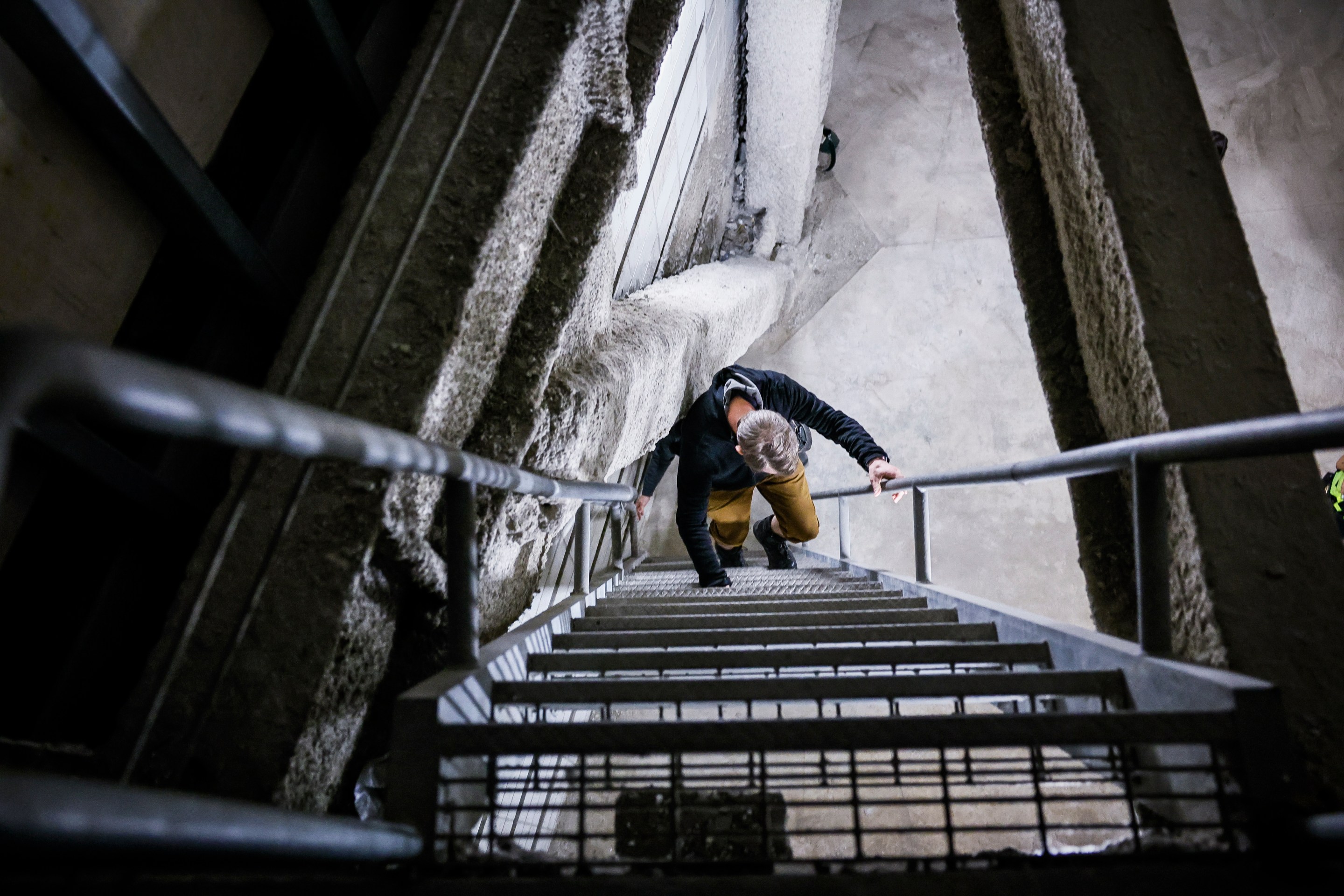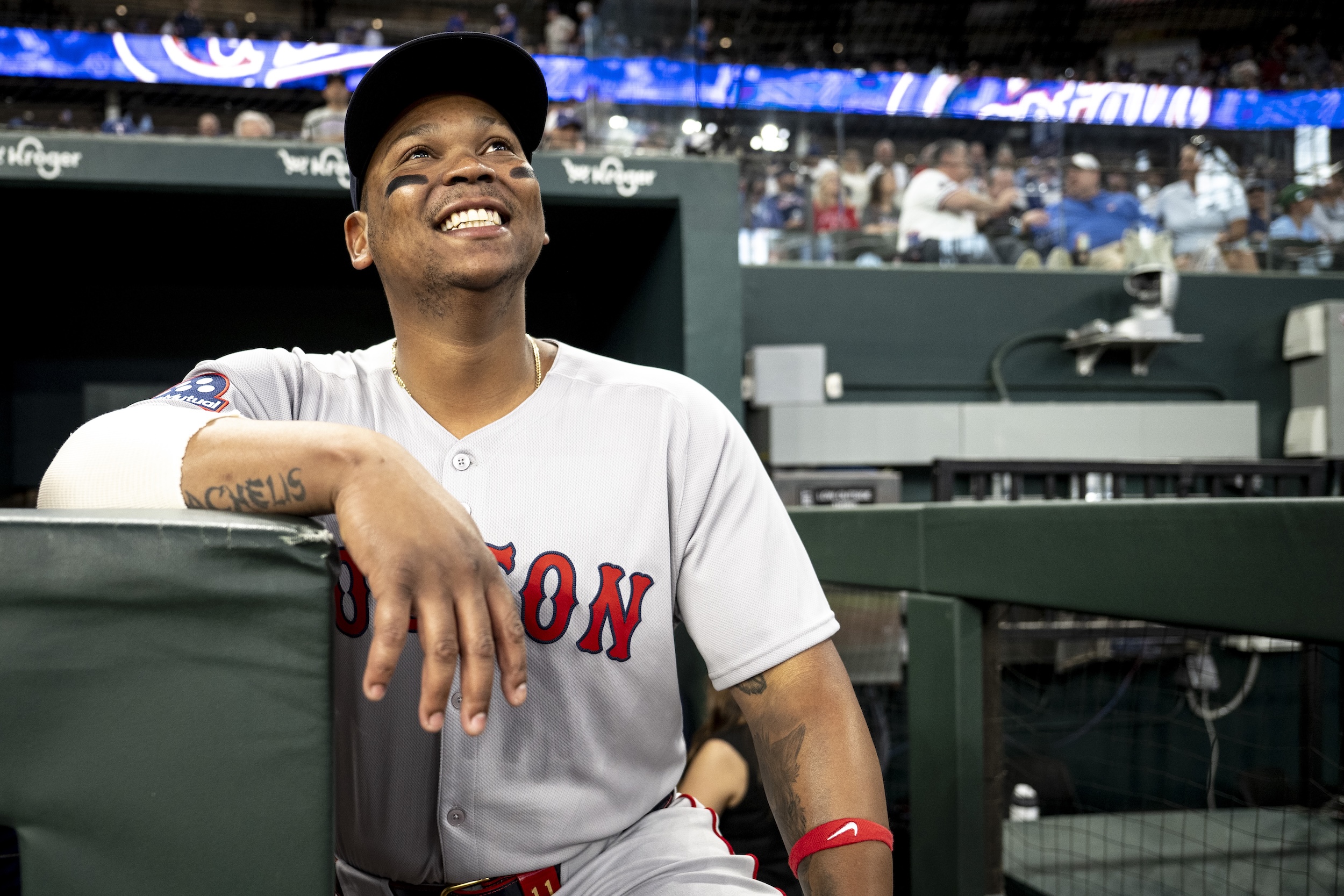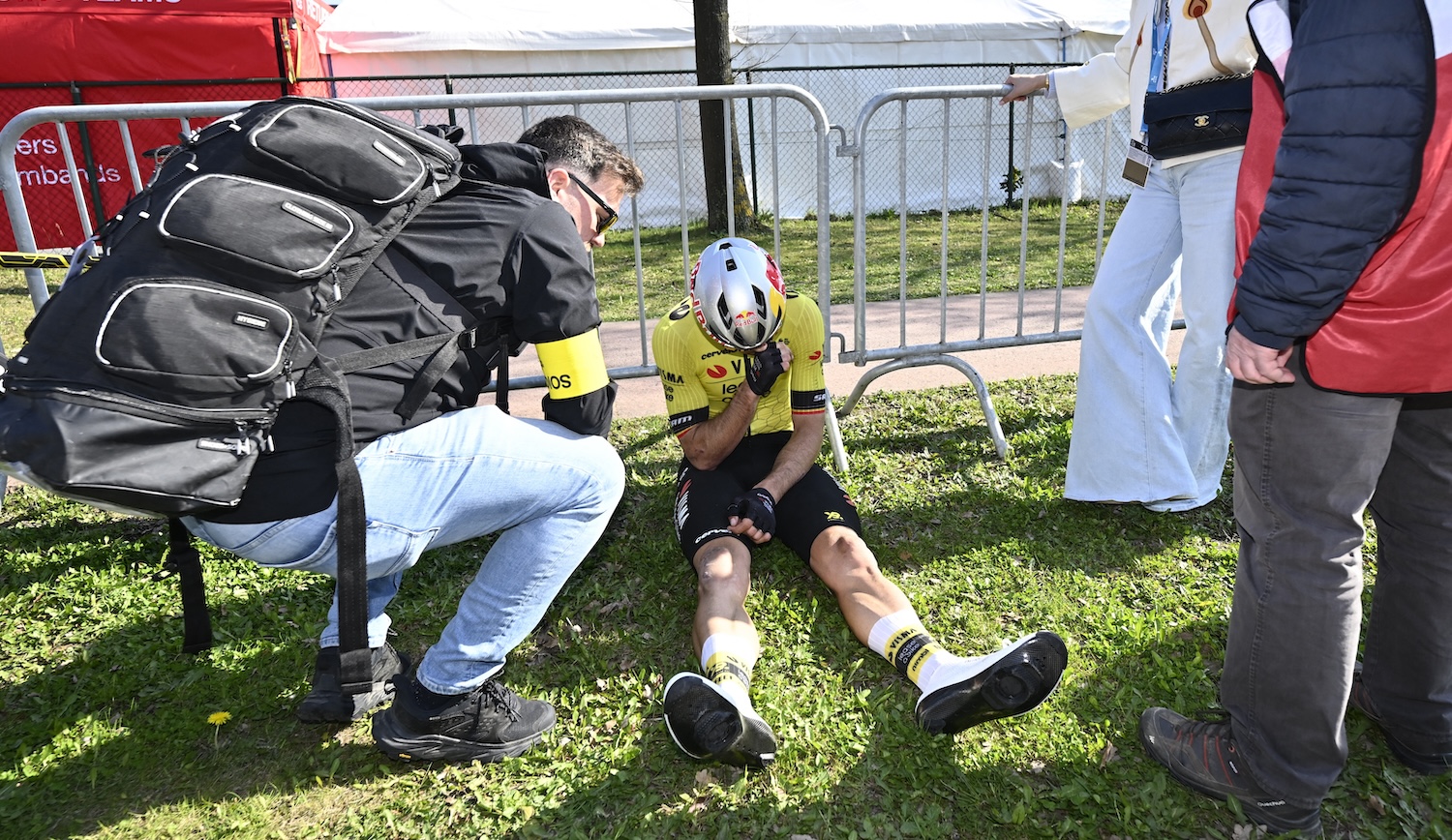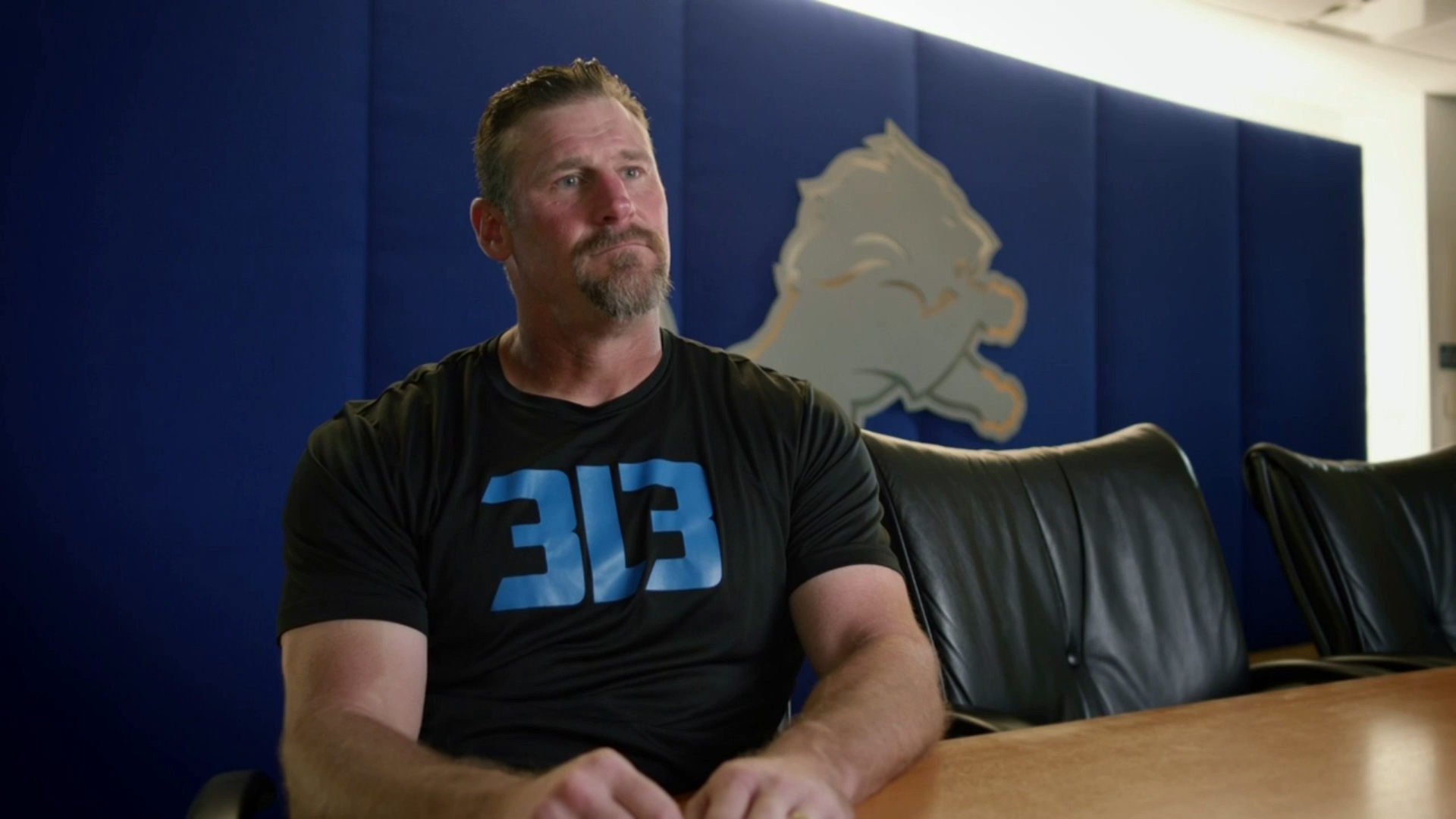I often think about the vacuous cruelty of tennis. The immutability of talent is such that scores of hard-working players will inevitably be ground to dust by generational foes who can simply do stuff their opponents can't. The most brutal aspect of the sport is the scoring system. Tennis is unique in that there is no clock, the drama of time running out replaced instead by moments of acute pressure as match point approaches. This isn’t soccer, where a 3-0 lead becomes safe well before the game is over. Stop playing well in tennis and you immediately get further away from winning, regardless of what the score is.
Because of the particulars of the scoring system and its repetition, choking becomes a very specific memory that can impact matches years into the future. Blow a 5-1 lead in a deciding set and you bet your ass you'll think about it the next time you go up 5-1 and every time after that as well. At the 2010 U.S. Open, Roger Federer had two match points against Novak Djokovic in the semifinals as Djokovic served at 4-5, 15-40 in the fifth set. Djokovic saved both with winners and went on to make the final. The following year, Federer again had two match points against Djokovic in the U.S. Open semifinals, this time serving at 5-3, 40-15 in the fifth set. Again, Djokovic saved both and won.
Almost eight years after that, Federer battled his way to an 8-7, 40-15 lead over Djokovic in the fifth set of the 2019 Wimbledon final: two more match points. Federer had served imperiously for the entire match, not facing a single break point until the end of the fourth set. He’d hit two aces to take the 40-15 lead. A win looked inevitable. This time it was, right? Right? Nope. With the 2011 U.S. Open perhaps looming in some hidden corner of both men’s minds, history repeated itself and yet again, Djokovic saved two match points and came back to win. It’s mentally agonizing, tennis, and it’s no wonder players choke as often as they do.
Federer made the point in his recent graduation speech at Dartmouth: Forgetting what happened on previous points is imperative to success. He’s half-right; you can’t let failure linger, but you also need to recall the patterns that give you the best odds of winning points. Federer wasn’t the best at that, as he blew match points en route to a loss more than 20 times in his epic career. Djokovic has suffered the same indignity just four times.
With this in mind, I wanted to do a thought exercise: Who wins the match at the end of Challengers? Luca Guadagnino went for an ambiguous ending, eschewing a conclusive result in favor of reconciliation—a transcendent moment of harmony at the net serving as the culmination of what feels like 42 minutes of slow-motion sweating. Screw that! Tennis matches end conclusively, overpowering all the nuance that came before. So it shall be on Defector dot com.
A quick recap: When the film cuts to black, Patrick and Art have just played a manic opening point in a deciding-set tiebreak. Art hammers away a smash just before falling into Patrick's arms, but his legs hit the net during his leap, which, per the rules, costs him the point. So Patrick leads 6-2, 2-6, 6-6 (1-0 in the tiebreak). That 1-0 lead is relatively insignificant in the race to seven, so the match is still very much up for grabs.
Let’s gather information. Art is easily the more accomplished player. He’s won six major titles (we've got ourselves a blond Boris Becker! Minus the, um, tax evasion hopefully) across all three surfaces, missing only the U.S. Open. Presumably he’s also been ranked No. 1 at some point; no six-time major champion in ATP history has ever failed to obtain the top spot in the rankings. This right here is a future Hall of Famer. Comparatively, Patrick is a bum. He’s on the Challenger Tour when we see him during the film, therefore not good enough to regularly qualify for big tournaments, much less win them. Most of his characterization is related to never working sufficiently hard to maximize his evident talent.
Seems pretty clear, then—Art’s the guy. But there’s more to a tennis matchup than relative accomplishments. As teens, Patrick beat Art repeatedly, to the point that earlier in the film, Art abandons the pretense that he has a chance of winning before their U.S. Open junior singles final. The night before the fateful rematch, Art even asks Zendaya's Tashi Duncan how she will look at him “if I still can’t beat Patrick Zwieg,” suggesting that he’s suffering from pressure, self-doubt, or both. Not long after that, Tashi says that she will leave him if he loses. I bet that'll help with the pressure.
Art has the mental block here. The most cinematic ending to the match, the cleanest closing of the loop, is that he wins. He’s spent the last 15 years honing his craft to perfection, winning majors as Patrick languished on the Challenger Tour, wasting the talent he was never dedicated enough to develop. So Art, despite being Patrick’s inferior on court when they were horny teens, reaps the benefits of his hard work and beats his doubles partner-turned-rival now that they are horny adults. He seals a cathartic victory and convinces Tashi to stay, either out of the vestiges of love or an enduring belief that she can coach him to his first U.S. Open title. (Probably the latter.)
The more realistic ending is that for the purposes of this match, the past 15 years mean nothing and Patrick wins again. Patrick has beaten Art every time they’ve played before. Tennis players revert to their comfort zones under severe pressure—remember Djokovic being able to repeatedly save those match points against a nervous Federer—and we know that Patrick’s best has always beaten Art’s. That will probably happen once more.
But Art is a major champion and Patrick hasn’t won shit! I hear the tennis sickos typing. In real tennis, Jannik Sinner lost to Daniil Medvedev six straight times and now kicks his ass every time they play! Isn’t Art better than Patrick now? You’re right, my fellow sickos. Sinner used to be Medvedev’s pigeon, but in recent years, he’s built a game that dismantles his former master no matter how well Medvedev plays. It’d be theoretically possible for Art to just sweep past Patrick, then, riding the skills that made him infinitely more accomplished than his scorned buddy to an easy victory. However, in the neck-and-neck part of the match that we do get to see, we witness something different. The match is as close as it can possibly be; Patrick got off to an early lead, and when Art hit his stride by winning the second set, Patrick stuck with him in the third set. Worse for Art, Patrick is still in his head, as evidenced by him asking Tashi the night before how she will look at him if he doesn't win.
It’s advantage, Patrick. Art can win, sure, if he pulls a crazy shot out of thin air at the end of the tiebreak, or if Patrick implodes. The fact that Art has won six major titles even suggests he’s capable of summoning the greatness required for the crazy shots. But in the Zweig-Donaldson matchup, there’s no precedent for Art rising to the occasion that way. (And, since Art’s still struggling to rebound from injury and nearing retirement, it’s unlikely that he’d have the confidence to tap into that well of greatness in the moment.)
No, most likely, when he most wants the game he has spent half his life improving to be there for him, Art falls short yet again. He flashes back to their junior days at 4-4 in the tiebreak and misses a gimme, which leads to Patrick closing out the match, or Patrick just runs away from him as Art chokes a series of points in a row, or Patrick plays his best and wins no matter what Art does.
In the end, cinema might give a damn about tennis, but tennis couldn't care less. Sorry, Art. Your sport of choice might be the only mistress crueler than Tashi.
